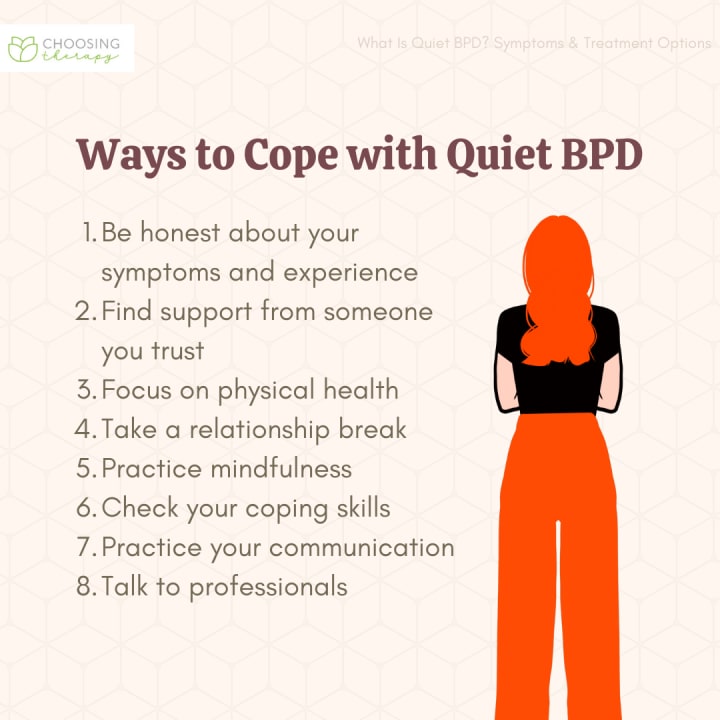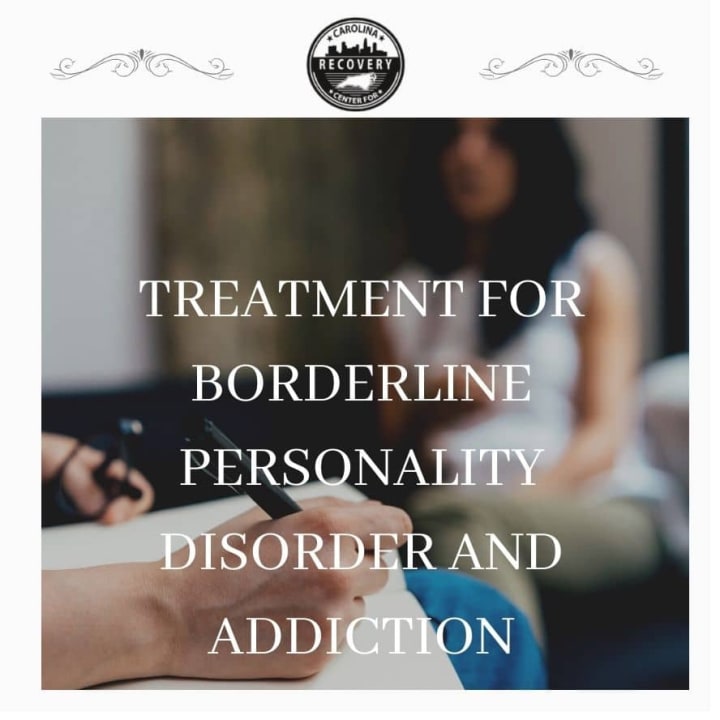
The exact causes of borderline personality disorder (BPD) are not fully understood. It is believed that a combination of genetic, biological, and environmental factors contributes to the development of the disorder. It is important to note that BPD is not something that a person "gets" or acquires like an infection. Instead, it is a complex mental health condition that emerges over time.
Here are some factors that may contribute to the development of BPD:
Genetic Factors: Research suggests that there may be a genetic predisposition to BPD. Studies have found that individuals with a family history of BPD or other mental health disorders may be at a higher risk of developing the condition. However, having a genetic predisposition does not guarantee that a person will develop BPD.
Neurobiological Factors: Certain abnormalities in brain structure and function have been observed in individuals with BPD. For example, there may be differences in the areas of the brain responsible for emotional regulation and impulse control. These neurobiological factors may contribute to the emotional dysregulation and impulsive behaviors characteristic of BPD.
Environmental Factors: Adverse childhood experiences, such as abuse (physical, sexual, or emotional), neglect, unstable family environments, or early trauma, are commonly associated with the development of BPD. These experiences can disrupt healthy emotional development and contribute to the development of BPD symptoms. However, not all individuals who experience adverse childhood experiences develop BPD, indicating that other factors interact with the environment.

Invalidating Environments: Growing up in an invalidating or unstable environment can also contribute to the development of BPD. An invalidating environment is one where an individual's emotions, thoughts, and experiences are consistently dismissed, ignored, or invalidated. This can lead to difficulties in developing a stable sense of self and effective emotional regulation skills, which are hallmark features of BPD.

It's important to note that while these factors may increase the risk of developing BPD, they do not guarantee that a person will develop the disorder. BPD is a complex condition influenced by multiple factors, and each person's experience is unique.
If you or someone you know is struggling with symptoms or concerns related to BPD, it is crucial to seek professional help from a mental health provider who can provide an accurate diagnosis, support, and appropriate treatment options.

While borderline personality disorder (BPD) is a complex mental health condition that typically requires professional treatment, there are several natural strategies that can complement therapy and support overall well-being. Here are ten natural ways that may help individuals with BPD:
Seek Professional Help: The first and most important step is to consult a mental health professional experienced in treating BPD. They can provide an accurate diagnosis, develop a personalized treatment plan, and offer guidance throughout the recovery process.
Practice Mindfulness: Mindfulness exercises, such as meditation or deep breathing techniques, can help individuals with BPD develop awareness of their thoughts, emotions, and bodily sensations. Mindfulness can improve emotional regulation, reduce impulsivity, and enhance overall well-being.
Engage in Regular Exercise: Physical activity has been shown to have a positive impact on mental health. Regular exercise, such as walking, running, yoga, or dancing, can help reduce stress, improve mood, and promote overall well-being.
Build a Supportive Social Network: Surrounding yourself with understanding and supportive individuals can be immensely beneficial. Seek out friends, family members, or support groups who can provide empathy, validation, and encouragement during difficult times.
Develop Healthy Coping Mechanisms: Explore and practice healthy coping mechanisms that work for you. This may include engaging in creative outlets like art, music, or writing, practicing self-care activities, or engaging in activities that bring joy and relaxation.
Establish Routine and Structure: Creating a structured daily routine can help individuals with BPD manage their emotions and reduce feelings of chaos or instability. Set regular sleep patterns, maintain a balanced diet, and incorporate activities that promote stability and a sense of purpose.
Learn Emotional Regulation Skills: Work with a mental health professional to develop effective strategies for regulating emotions. This may include identifying triggers, practicing emotional awareness, and utilizing techniques such as grounding exercises, journaling, or using a feelings diary.
Educate Yourself: Learn about BPD to gain a better understanding of the condition and its symptoms. By educating yourself about BPD, you can develop self-compassion, challenge self-stigma, and actively participate in your own recovery journey.
Practice Self-Compassion: Be kind and gentle with yourself. BPD can lead to self-critical thoughts and feelings of unworthiness. Cultivate self-compassion by practicing self-acceptance, challenging negative self-talk, and engaging in self-care activities that promote self-love and well-being.
Engage in Dialectical Behavior Therapy (DBT) Techniques: DBT is a specialized therapy approach designed to help individuals with BPD. Some DBT techniques, such as mindfulness, distress tolerance, emotional regulation, and interpersonal effectiveness skills, can be practiced independently and may aid in managing BPD symptoms.
It is important to note that these natural strategies can be valuable additions to professional treatment, but they are not meant to replace therapy or medication if prescribed. Always consult with a mental health professional to develop an individualized treatment plan that best suits your needs.
About the Creator
Jeff koli
Pure Facts in Life!






Comments
There are no comments for this story
Be the first to respond and start the conversation.